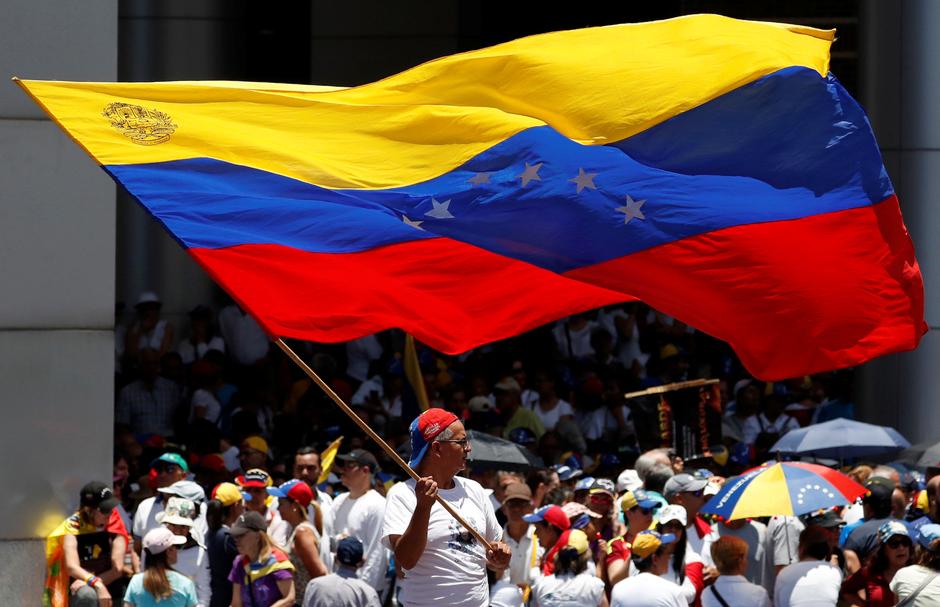The Truth Behind Venezuela Since President Chavez Took Power
Maria Areyan Hernandez
Venezuela. You read it all over the newspapers. The front pages of The New York Times and The Washington Post address the current issues. You turn on the TV, and CNN or Fox News are debating whether the policies taken by the United States are convenient and what are the next steps to put more pressure on Nicolas Maduro’s regime. What they do not remind you is how all of this began; therefore, a Venezuelan herself will address it for you.
Let’s take a step back to last year when the straw broke the camel’s back:
2019: Venezuela Today in Presidential Crisis
In May 2018, presidential elections were held in Venezuela. The original date for election day was officially in December 2018, but the National Constituent Assembly (elected 2017) decided to push the elections to April 22, 2017. Then, as election day was approximating, another change was made — now the election day would be in May 2018.
These irregularities were taken into consideration by a lot of non-profit political organizations, such as Foro Penal Venezolano, a human rights organization that provides free aid to the public, showed concern on the lack of standard electoral process. Also, the fact that there was very limited opposition to Maduro’s Party (United Socialist Party of Venezuela or PSUV) alarmed the opposition. Only two leading opposition candidates participated — Henri Falcon from the Progressive Advancement Party and Javier Bertucci from El Cambio Party. Both rejected the election’s final results.
As no surprise for the Venezuelan people, Maduro “fairly” won the election and was inaugurated in January 2019, which led to the presidential crisis Venezuela is dealing with today.
Menganalisis, a Venezuelan poll organization focused on presidential elections, stated in its January 2018 poll that only 29 percent of respondents desired to vote in the elections and 72.5 percent stated that they did not trust the National Electoral Council (Consejo Nacional Electoral – CNE). Those who chose not to vote had various reasons; 45 percent believed that even if they voted, famine would continue, 20 percent believed it was a “waste of time,” and 13 percent believed that the opposition had betrayed the country. As for the support of political parties, 81 percent stated that they were not part of any party, 12 percent were part of the government Party, and six percent supported the opposition-led Democratic Unity Roundtable
The message has been clear — Venezuelans want Maduro’s regime out and these elections were the ultimatum of destroying Venezuela’s non-existent democracy.
January 2019, the National Assembly declared the results of the election invalid and called for clauses of the 1999 Venezuelan Constitution that would install National Assembly Speaker Juan Guaidó as acting president. Several international organizations and independent countries have supported this decision and the former Supreme Tribunal of Justice, on the exile in Panama since 2017, has given its support to the legitimacy of the National Assembly’s decision.
According to the interpretation of article 233, “Pending election and inauguration of the new President, the President of the National Assembly shall take charge of the Presidency of the Republic.” Therefore, Guaidó did not declare himself president for pleasure.
At the moment Maduro was inaugurated in January 2019, the European Union, the Organization of American States, the Lima Group and countries including Australia and the United States declared the election process undemocratic and declared Maduro as the illegitimate president of Venezuela.
The international support and the rise of Guaidó being a leader has given Venezuelans the hope they lost back in 2017.
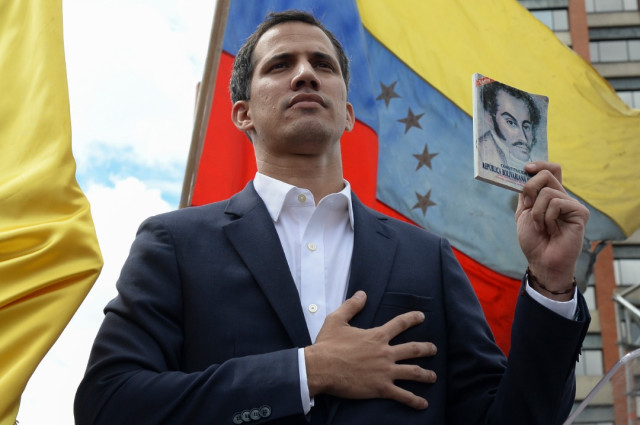
On January 23rd, marks the 61st anniversary when the military in 1958 threw a coup d’etat to Marcos Perez Jimenez dictatorship, and when hundreds of thousands of Venezuelans gathered all around the country to see and support Guaido takes the oath of office by saying “I pledge, before Almighty God… to formally assume the power of the national executive office as the president of Venezuela.”
Now that you have an overview of how Venezuela got to this point of its history, let’s navigate why Venezuela has been involved in this traumatic fight since Hugo Chavez threw a coup d’etat in 1992.
La Cuarta República: Venezuela Under the 1961 Constitution
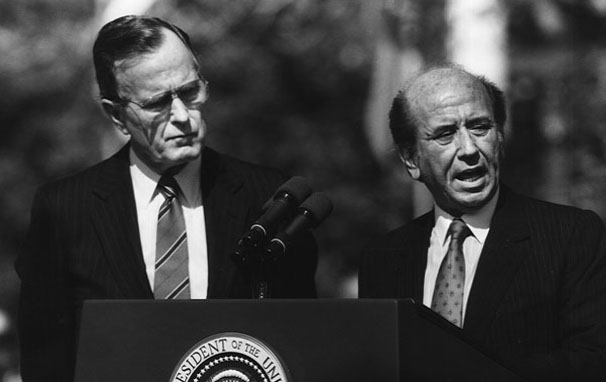
Carlos Andres Perez Jimenez, founder of the Democratic Action Party (Accion Democratica – AD) was president of Venezuela for two terms. During his second term, economic situations were in a bad place. Many were seeking a change in economic and political structure; therefore, massive protests struck out leaving 3,000 dead, this violent event is known as the Caracazo.
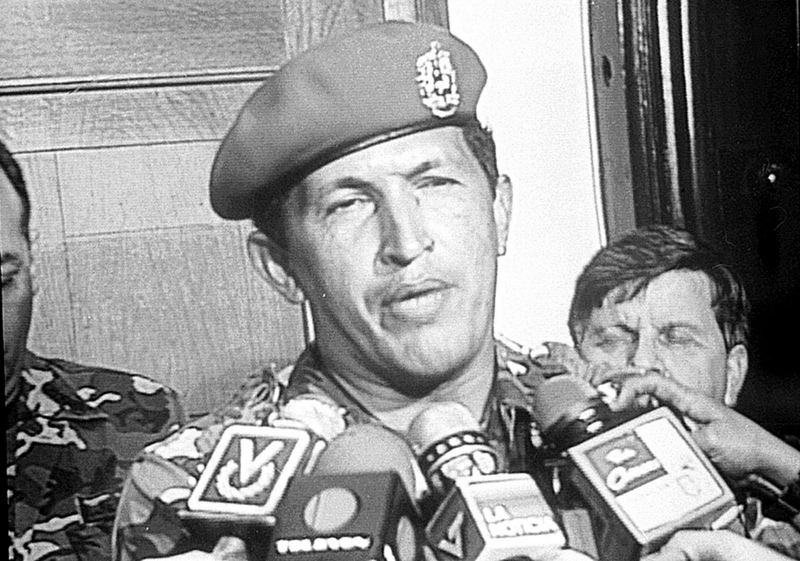
In February 1992, Lieutenant-Colonel Hugo Chavez gathered five military units and tried to seize Miraflores Palace, the defense ministry, La Carlota military airport, and the Military Museum. The attack was a complete failure, but Chavez gained strong support from the high poor population of the country at that time.
Chavez stood up for social injustice and corruption within the current government. Venezuela was going through a high rate of poverty among the population, so Chavez’s charismatic personality led him to establish his power through the poor people of the country. Due to his revolting actions, he was imprisoned in the military prison of San Carlos.
November of 1992, rumors of political corruption from the Perez government came out to the public and was supported by journalist José Vicente Rangel. Perez was being accused of the misappropriation of monetary funds.
In 1993, the Supreme Court considered the accusation valid and the National Assembly, specifically the Senate since back then the assembly was a bicameral congress, impeached President Perez for corruption.
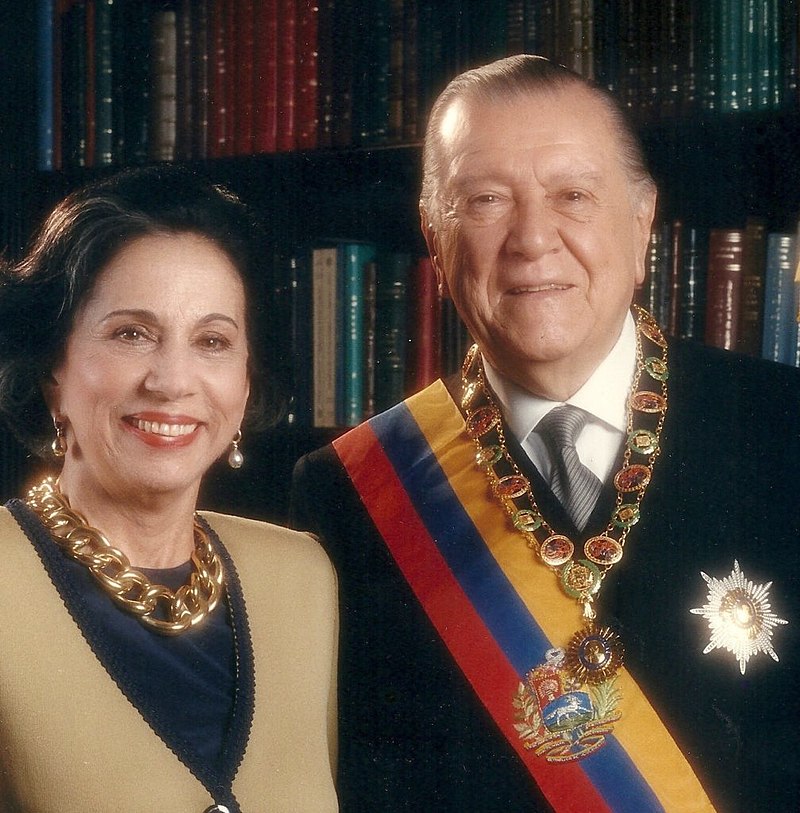
The same year, presidential elections were held and Rafael Caldera won becoming the 39th President of the Fourth Venezuelan Republic. Caldera’s second administration faced major challenges that had weakened the country’s economy, but not as tragically as it is today.
In 1994, Congress wanted to ratify an amnesty bill to those who led the 1992 coup d’etat, including Chavez. At first, Caldera was hesitant about this idea, originally brought by former President Perez, but ended up freeing and pardoning all military men that participated in the coup.
Today, some Venezuelans blame Caldera for freeing Chavez and not inhibiting him of participating in the 1998 presidential elections.
1999: Rise of the Socialist Fifth Republic
High rates of poverty and crime were still flowing around the country. Many Venezuelans were getting weary of the weak economy and the declining legitimacy of the past two governments and main parties, COPEI Party, or Green Party, and Democratic Action Party. Venezuelans desired truthful change, which made the journey for Chavez quite easy.
Presidential Elections were held December 6, 1998, having Hugo Chavez from Fifth Republic Movement Party (Movimiento V [Quinta] Republica, MVR) and Henrique Römer from Project Venezuela Party. Both parties were newly created and this gave the people a sense of change from the traditional main parties.
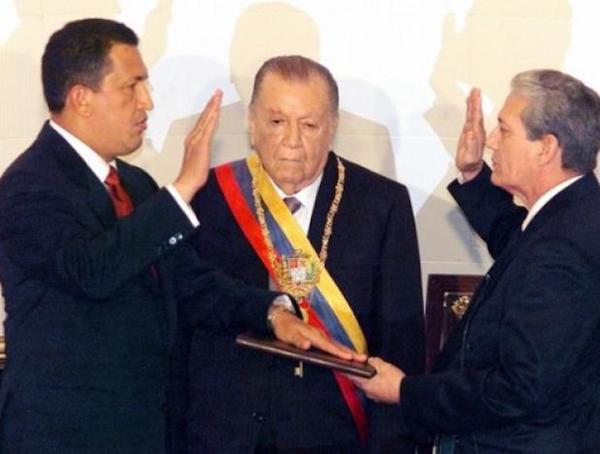
Römer was disadvantaged when COPEI and Democratic Action decided to support him. This led to the strong defeat for Römer with Chavez winning the presidential election with the 56.20 percent of votes, while Römer lost with 39.97 percent of votes, according to the official National Electoral Council presidential election records.
Chavez seemed to be a very thoughtful, well educated, and truthful man during his campaign. In an interview with Mexican-American journalist Jorge Ramos in December 1998, Ramos asked Hugo Chavez three crucial questions about the current Venezuelan situation that dismantle all Chavez’s promises as lies.
Ramos told Chavez that foreign governments feared his rise to power and asked if he was willing to give up power after five years in office. Chavez said, “Of course I’m willing to give it up. Not only after five years… we have proposed constitutional reform, a transformation of the political system so that we can have a true democracy.”
He continued by saying that if he turned out to be discovered of involvement in corruption and it is justified before his term’s culmination, Chavez said, “I’m willing to do that.”
Other promises were to not interfere with the media organizations, to not interfere with private businesses nor with the foreign private sector, and to work along with all Latin American countries, including the United States.
It turns out that this is not Venezuela’s socioeconomic and political outlook today.
Changes started to be noticed as soon as Chavez called for a referendum to propose the election of a National Constituent Assembly, that will be responsible for rewriting a new constitution. Most Venezuelans agreed with it and the Constituent Assembly was elected only for the creation of the new, and now current, 1999 Constitution.
Although Venezuelans agreed with the revision of the constitution; many candidates opposed it. However, Chavez supporters overwhelmingly won the election and had the majority of the Assembly’s seats. This led to the draft of the constitution, which gave more power to the executive branch and allowed censorship.
The Supreme Court became the Supreme Tribunal of Justice. Congress was not bicameral legislation anymore, the presidential term was now six years, the military forces now had more power to ensure public order, and even Venezuela’s former name changed from the Republic of Venezuela to the Bolivarian Republic of Venezuela.
According to Venezuela’s current constitution, an election should be held to re-legitimize the government and president. Once again, Chavez was re-elected and the majority of his support came from the poor areas of the country.
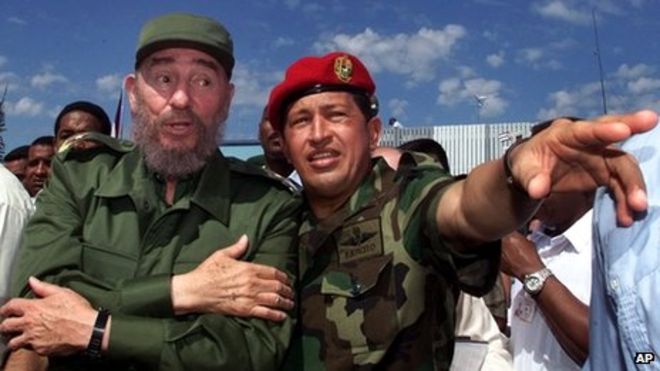
Chavez’s beliefs were now more radical and it was shown through the close relationship he established with Cuban leader Fidel Castro, which led to the deterioration of Venezuela’s relationship with the United States. Venezuelans speculate that Castro’s regime had been infiltrating their ideologies in Venezuela through former President Chavez.
Chavez began to attack the private sector of the economy by decreasing foreign control of Venezuela’s economy and establishing the state-run oil company Petroleos de Venezuela S.A. (PDVSA) as the primary company for the country’s oil and gas. Furthermore, Chavez decided to fire all former managers and executives of PDVSA to replace them with political allies, who often had little experience in the oil industry.
Oil prices boomed around 2004, helping Chavez use the profit for the creation of social-welfare programs. According to the Economic Commission for Latin America and Caribbean (ECLAC), Chavez reduced poverty by more than half. However, he kept spending billions of money on funding these programs forgetting that Venezuela’s economy is dependent on oil barrel prices.
Chavez not only attacked private businesses related to oil. He also started persecuting the media who did not sympathize with his ideologies and actions within his government.
This oppression is reflected on the denial of renewing Radio Caracas Television (RCTV) broadcasting license to stay on air for the next couple of years. RCTV was accused of inciting the 2002 coup d’etat attempts, but it is widely known by the Venezuelan audience that the reason for shutting down the TV network was because they challenged and highly criticized the current government. RCTV went off air on May 27, 2007 — a very devastating day for Venezuelans to remember, but also a day of realization that this government was not very promising and beneficial for the country’s history.
Oil prices started to plummet under Chavez’s government, but after he died in 2013, his chosen successor Nicolas Maduro could not fix it.
2013-Today: The Plague of the 21st Century
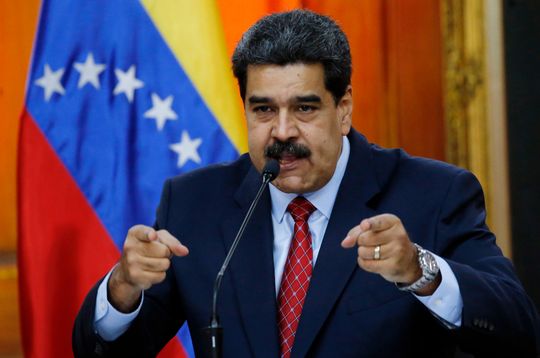
Venezuelan President Nicolas Maduro’s ineffectiveness at adjusting the economy and former President Chavez’s unregulated spending led to the famous hyperinflation Venezuela deals with today, which causes inaccessibility to basic food products and medicines.
The rate of inflation is the highest in the country being 946 percent in 2017 and The International Monetary Fund (IMF) predicted that inflation would top 1 million percent in 2018 and 10 million percent in 2019. Money is worthless and Venezuelans access foreign currency through the black market. Venezuela’s currency is so devalued that they have to pay for basic goods with US dollars or Euros.
Soon after President Chavez died of prostate cancer on March 5, 2013, elections were held on April 14 of the same year. It is highly speculated among Venezuelans that Chavez actually died somewhere in December 2012 in Havana, Cuba, where he was receiving treatment for his illness. However, the government tried to hide this fact to prevent outrage within the country.
For this electoral process, the running candidates were Nicolas Maduro from the PSUV party and Henrique Capriles Radonski from Democratic Unity Roundtable.
For this election, I was already a teenager and had a somewhat clearer political view of the country’s situation. I remember the ongoing campaigns for both candidates and people around my neighborhood excited, hopeful to elect a new government.
Many showed strong support for Radonski, but there were still some strong feelings towards the current government’s party. People did not really believe in Maduro as a strong individual leader; they believed in him just because he was the successor of Chavez.
Poverty rate was even higher around this time and the country’s murder rate had surpassed the most dangerous cities in the world.
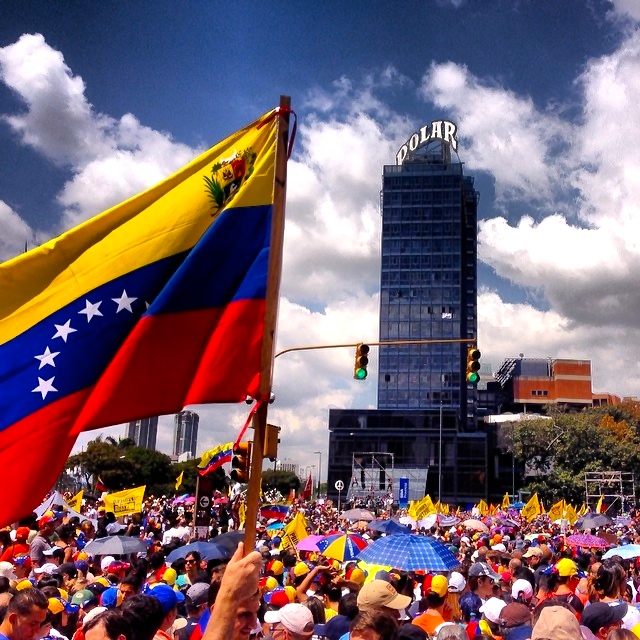
The election’s results marked a victory for the candidate Nicolas Maduro, making him the 46th president of the Fifth Republic. The people’s reaction was very negative. Radonski also claimed that there was fraud and called for a total recount. This decision was backed up by the people. Political demonstrations started to break out in 2014. People not only protested against the 2013 presidential election results, but also for the high levels of crimes and violence, inflation, food shortages of basic goods, constant power outages and water runouts, lack of medicines, no maintenance of educational institutions, and bad salary that prevented common citizens from surviving on a daily basis.
Protests were mainly led by students from the top-ranked universities all across the country. This was encouraged by politician and now political prisoner Leopoldo Lopez. Maduro, on the other hand, encouraged his supporters to protest against the ‘false allegations against his government’ made by the opposition leaders and supporters.
Police response to these protests was one of the main reasons many were angered and suffering. The usage of chemical agents and firearms by policemen, paramilitary groups known as colectivos and the National Bolivarian Armed Forces of Venezuela against the pacifist protesters left at least 43 people dead, more than 486 injured, and 1,854 were detained during the protests according to the Public Ministry of Venezuela.
After Chavez’s death, everything started to go downhill. Maduro, until this day, has not achieved his goal of continuing Chavez’s way to govern and legacy, but now it seems that Maduro and his cabinet do not feel ashamed to demonstrate who they really are: a group of totalitarian, communist, dictator leaders that commits crimes against humanity towards its own people.
In 2014, signs of a dictatorial government were more tangible than ever before. Maduro’s regime decided to take CNN and NTN24’s broadcasting license and put them off air to the Venezuelan audience just because they were doing their duty on reporting the protests and events that occurred all throughout the country and mainly in Caracas, the capital of Venezuela.
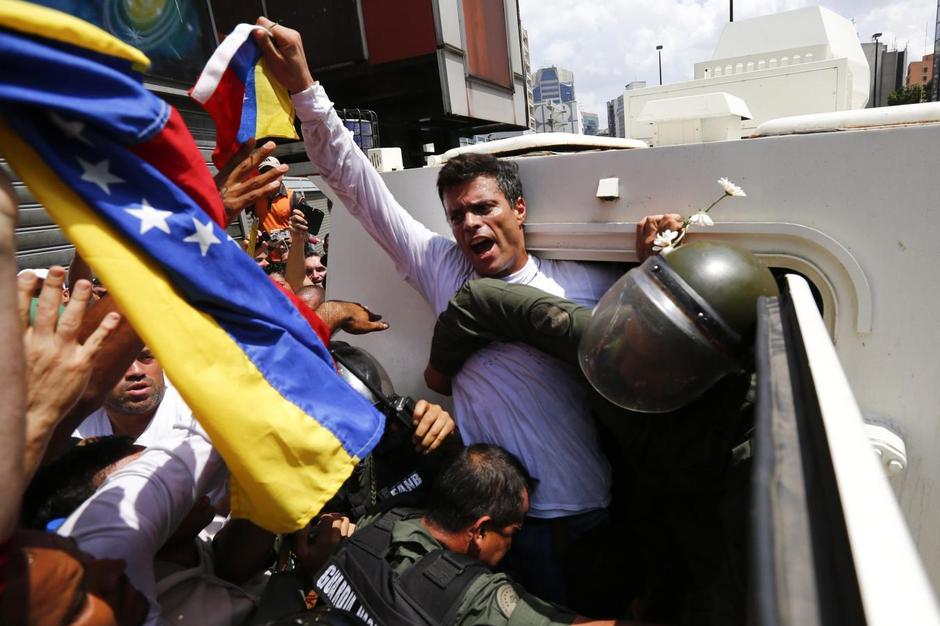
Moreover, Leopoldo Lopez was held responsible for the violent protests and the encouragement of terrorism by the government officials. Venezuelans knew this was simply not true. Yet on February 18, 2014, Lopez turned himself in to the government for the sake of its people and supporters. A hearing to charge Lopez took place from February 19-20 and on September 10, 2015, Lopez was convicted and sentenced for 14 years in prison, which sparked the anger and eagerness of the Venezuelan people to protest against what is not true and undemocratic.
More years of turmoil were yet to come. Every hour of the day gets more unbearable than the last one.
According to the documentary Chavismo: The Plague of The 21st Century directed by Gustavo Tovar Arroyo, every 20 minutes a Venezuelan is murdered.
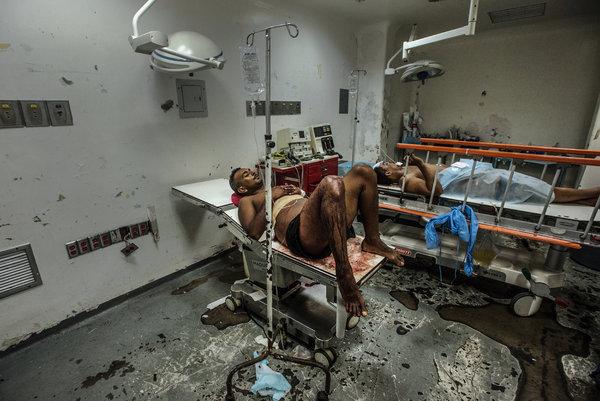
Venezuelans have no good access to the promised health care system Chavez built. Many patients and hospitals lack medical supplies making patients go on an endless hunt for medications just to save their life. As they fight for medications, they also have to wait in an average of four to five-hour long line just to get bread. Sometimes they are not even lucky enough to be able to actually get it because of the high demand and incredibly low supply.
This is something that I witnessed on my way to school every morning. On my way back home, the line of people waiting just to get a simple bottle of shampoo seemed to be as long as it was when I first saw it. At one point, my family did not have another alternative other than to do the same thing as many other Venezuelans. Sometimes we would witness fights outbreak because there were not enough products for everyone at the supermarket and many used these products for self-profit by reselling them at the Colombian-Venezuelan border. Those memories will never be erased from my mind.
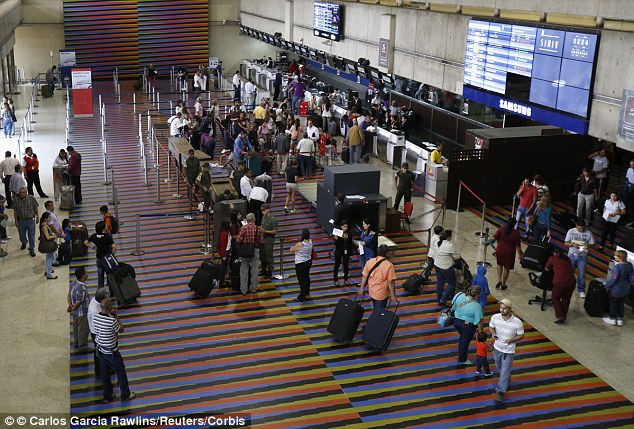
By the time 2017 arrived, I was not living in Venezuela anymore. As many other Venezuelans, my family and I got wary of the situation. Having to wait in line with the hope of finding the product you are looking for, stressing over the skyrocketing prices of basic goods, feeling scared of being followed and kidnapped, or even killed just because of your phone, not being able to spend some time outside without thinking that you are going to be robbed. There was not a possible way to enjoy a good standard of life.
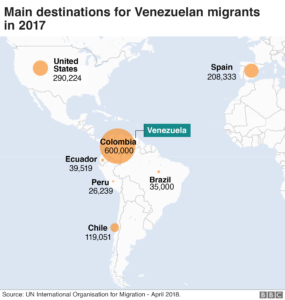
All these factors have caused a migration crisis in the country. According to the United Nations Refugee Agency, around 3 million Venezuelans have fled the country and the number is expected to rise to 5 million by the end of 2019.
Most go to countries where they can count on relatives, who have already established their lives in the country and can help them find jobs and access education. For the past two to three years, this has not been an option for many.
The vast majority of Venezuelans, due to the lack access of the foreign currency and no access to international airlines, have no other alternative but to cross the Colombian-Venezuelan border to escape the tragedy. Families with children and newborns, pregnant women (ages ranging from 16-34), the elderly, the ill, and people with disabilities cross the border every single hour of every single day. Colombia has been very welcoming to Venezuelans letting at least 1 million Venezuelans stay in the country.
These people are in higher risks of labor or sexual exploitation, trafficking, violation, discrimination, and xenophobia according to the United Nations. For example, on January 20, 2018, a mob of angry Ecuadorians attacked the city of Ibarra, where many Venezuelans live, targeting Venezuelans’ houses and forcibly taking them out of their property because of the resentment of the criminal event that occurred January 19, when a Venezuelan man publicly stabbed his partner, an Ecuadorian woman.
2017 was the year of the biggest wave of protests in the country. Venezuelans all over the world and within the country began protesting against the decision taken by the Supreme Tribunal of Justice of dissolving the majority opposition-led National Assembly and transferring all the power to Maduro. Starting March 31 and ending August 12, Venezuelans protested for 134 consecutive days resisting against violent attacks from the pro-government paramilitaries (colectivos), National Guard, Bolivarian Militia, and National Police. As a result of these protests, 165 were killed, 15,000 were injured, and 4,848 people were arrested.
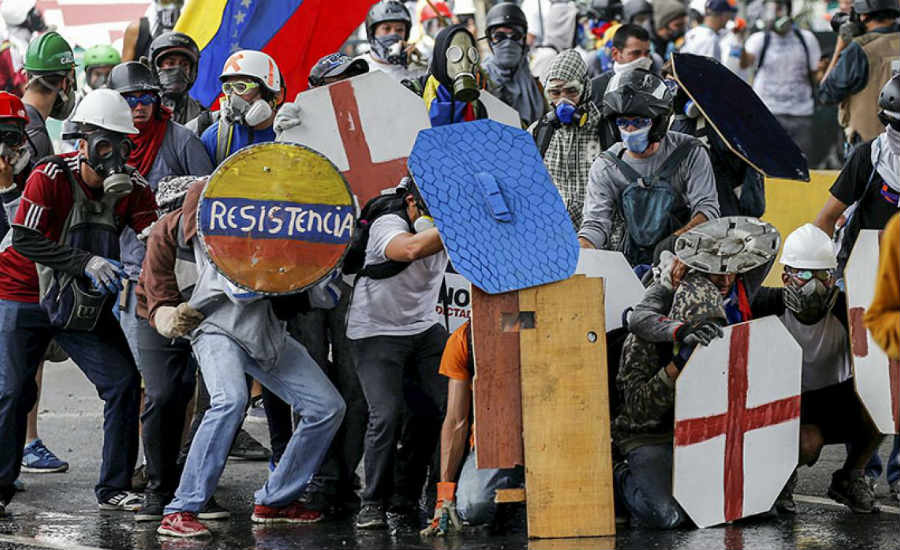
Organized groups such as the Resistencia (Resistance) were known for confronting the Venezuelan authorities. Members tried their best to protect other pacifist protesters with self-made shields to avoid bullets, or they threw back, the tear gas bombs thrown at them, to the authorities.
Among those killed was Cesar Pereira, a young man that captivated everyone’s heart. I had the privilege to meet him when I was around 14 years old. Charismatic, well-known around town, friendly, and full of life. While all these protests were happening, I was constantly checking on my social media — the less reliable source for news but for most Venezuelans the last source due to media censorship, — to check on any update about the well-being of the protesters. When I saw that video of the police, reloading his large shotgun, ready to shoot at innocent college students fighting for their future, and to then read the following statement: This video demonstrates how an official from the Anzoategui Police reloading his shotgun…shots at our brother Cesar David Pereira Villegas.
My heart rate dropped. I could not believe what I was seeing as his friends tried to help him and shouting, “Stop shooting at him!” multiple times at the policeman.
The goal of the protests was not achieved and disappointment grew among the people. Many did not believe in the promises made by opposition leaders, such as Lilian Tintori, Maria Corina Machado, Julio Borges, and Henry Ramos Allup.
Opposition leaders continued fighting and encouraging Venezuelans to stay outside in the streets protesting, but many were scared to death of the repression they lived throughout the year.

Photo Courtesy of NBC News
In 2018, Oscar Pérez, a rebel helicopter pilot who promised to throw a coup against Maduro’s regime, was cornered by government forces and killed in the siege by military and paramilitary forces. Many believed that he was another puppet from the government that was forced to record a video where he creates the illusion that someone is going to have the back of the Venezuelan people. We were wrong.
This brings us to today. Venezuelans have been in a constant fight since Chavez took power. This is not something that the United States suddenly created with their economic sanctions on government officials, as someone decided to lecture me at one of the D.C. protests I have attended. It may have had an impact, but this is definitely not the main reason Venezuela is deteriorating in every aspect today. Nevertheless, all this fight is not a US backed coup.
Venezuela is in chaos because of the mismanagement of its economy over the last two decades and extreme corruption within the government.
Let’s not forget that this fight that started early this year and continues today is not between ideologies, between political parties, between social classes, nor races. It is a fight against the humanitarian crisis, against the terror inflicted on the Venezuelan people, against the daily oppression and humiliation everyone goes through.
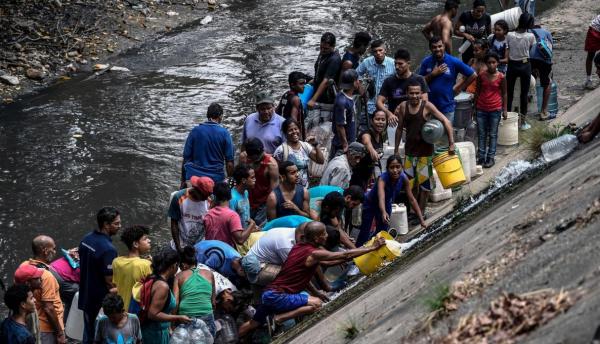
A massive blackout hit all 23 states and the capital of Venezuela on March 7, 2019. As you are reading this, many do not have basic services such as water and electricity. According to Encuesta Nacional de Hospitales, a poll created by Medicos por la Salud, — an organization founded with the goal of reporting the number of deaths caused by protests and demonstration– showed that 79 Venezuelans have died because of the absence of electricity in hospitals and over 1,557 have died because of the lack of medical supplies. The state that has been most affected by the sudden power outages was Zulia, a state located on the west coast and bordering Colombia.
The desperation among the people has caused more protests demanding the return of these basic services and spirilling activity in the Colombian-Venezuelan border worsens even more.
However, this time it seems that Venezuelans have turned on that light inside their hearts that was shut down two years ago. Guaidó, the Interim President, along with his wife Fabiana Rosales, has fought incredibly hard and received unbelievable support from all types of people and international organizations.
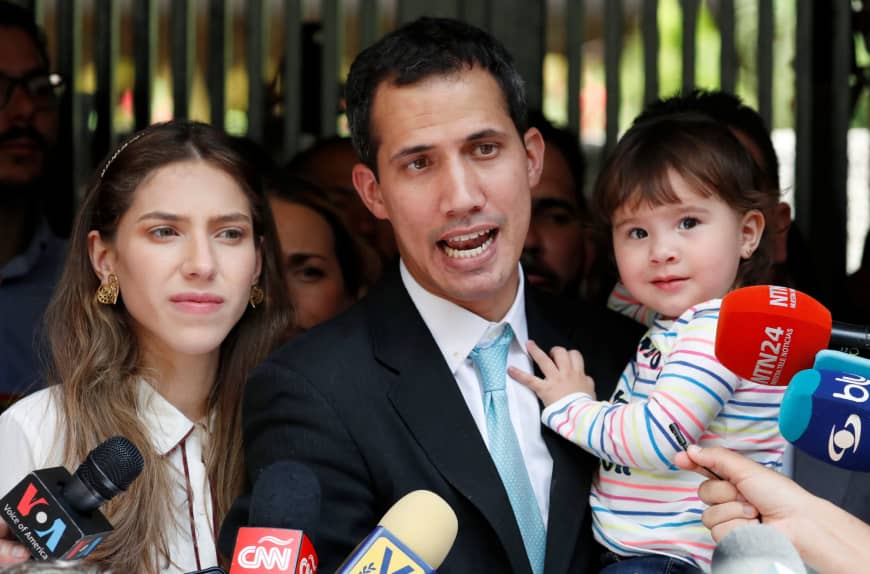
“Cese de la usurpación, gobierno de transición, y elecciones libres.” This is Guaidó’s plan, which translates to cease of the usurpation, transitional government, and free elections. Interim President Guaidó has accomplished little by little the first step of his plan by redesignating Venezuelan ambassadors until we reach the last part of his plan.
There has been strong consideration of approving a U.S. military intervention, but Elliot Abrams, American diplomat and lawyer, considered it a “premature” option to activate article 187 of the 1999 Venezuelan Constitution, which states the request of foreign military forces to intervene.
All this turmoil leaves Venezuelans with the unbearable question of whether Maduro’s regime is going to be taken out by foreign military intervention, or if the armed forces will ever pick up their dignity and do what they’ve been expected to do since 2004: overthrow Maduro’s regime. Anyways, Venezuelans deeply know that there is no turnaround.
I may be an expatriate and may not be able to truly understand what my people are dealing with right now. I may be privileged and feel guilt to have had the opportunity to flee my country with accommodations. I may be privileged to have the tranquility of writing this down with no fear of some sort of persecution. Again, I feel guilt. Nonetheless, I will not be an ex-patriot. I will never forget the deaths. I will never forget the fear, sense of hopelessness, and anxiety that this government has given us. I will never forget that I had to leave my grandparents behind. I will never forget home. But, I will never stop using my voice as the portal of the many Venezuelans that have been silenced throughout these 20 tragic years and I’m forever grateful for the opportunity the U.S. has given me to freely express myself.
I strongly believe that one day I will see my country, for the first time in my life, as democratic and beautiful as my parents always have depicted it to me. ¡Viva Venezuela!
This story may contain events that are in constant development.

